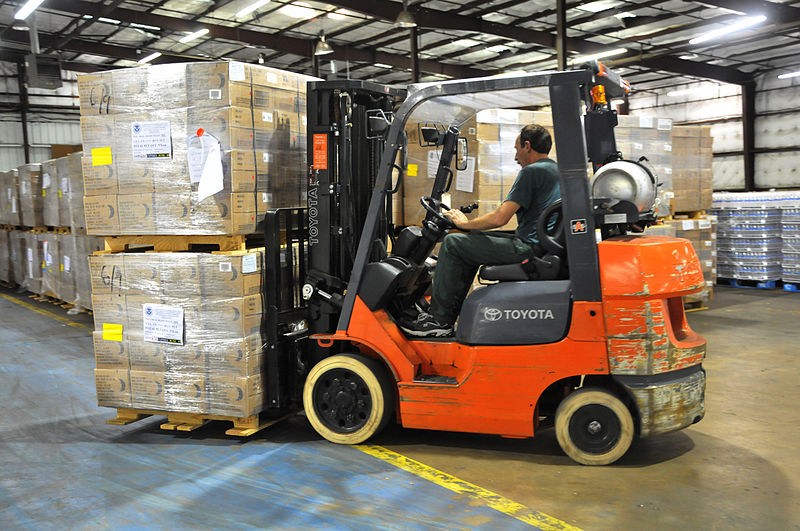While the problems in supply chains are reportedly over, warehouses have another problem. Goods continue to flow in but demand is falling, leading to overcrowded warehouses. Retail chains may have to run down inventory with price promotions.
During and after the Covid-19 period, shortages seemed to be the new normal, but those days are in the past.
"Warehouses are overflowing. Companies that are selling less now and are sitting with a lot of stock will have to run them down," said Joost Uwents, the CEO of WDP, the largest operator of warehouses in Belgium. "With rising interest rates, holding those larger stocks is also more expensive."
End-of-year stock pouring in
The ongoing energy crisis that has seen prices skyrocket has reduced demand for many products, while many containers from China are still on their way.
"What now comes from Asia was mostly ordered before the summer, at a time when nobody expected the energy crisis to hit so sharply," Uwents said. As the end-of-year stuff is pouring in, this could lead to warehouses getting even fuller in the coming weeks and months.
"It is a typical phenomenon at the beginning of a crisis," Uwents added. "Even during the 2008 financial crisis, every square metre of warehouse space was full because nothing got sold.
Uwents explained that on top of all this, the Covid-19 pandemic already saw little extra warehouse space as, to avoid production stoppages, companies switched from just-in-time to just-in-case and held on to more parts.
Awaiting Black Friday
Transport and logistics company Essers also reports that inventories are rising because more is arriving than disappearing from their warehouses. "We notice this in both the chemicals and pharmaceuticals sectors," said Spokesperson for Essers, Bob Van Steenweghen.
The shops themselves do not yet want to admit that they are preparing major price promotions to clear stocks, but some large chains do say that 'the years of scarcity are behind us'.
Jens Govaert, the CEO of Molecule, a large shopping centre in Vichte said that "people are also more careful in their purchases now because of the crisis. Price promotions do work. Last month we had a sharp action with tumble dryers that went really well. We are still planning similar promotions.'
At Media Markt, spokesperson Florence Baekelandt reported that certain segments are already oversupplied. "We expect to correct this oversupply during the Black Friday period and in the run-up to the World Cup."
Not everyone is complaining
At Colruyt, they do not speak of oversupply, but they do say that the supply of products to their toy chain Dreamland and bicycle subsidiary Bike Republic is now running much better – both of which stock mostly in Asia. "There is now a much wider supply of containers, so everything comes in on schedule," said spokesperson Silja Decock.
The situation has also turned a corner in the chip industry. Chip manufacturers could not keep up with demand at all in recent years, resulting in stalled car factories. There now seems to be an oversupply there as well. Companies such as Qualcomm and Intel recently announced layoffs and reduced investments.
Related News
To what extent price action on non-food items will depress inflation is difficult to predict. "Container rates in shipping may have fallen sharply, but the price to get that container by truck to here has become more expensive due to high diesel prices," said Molecule's Govaerts. In the food sector, also a major driver of inflation, there has been much less oversupply or overstocking.

